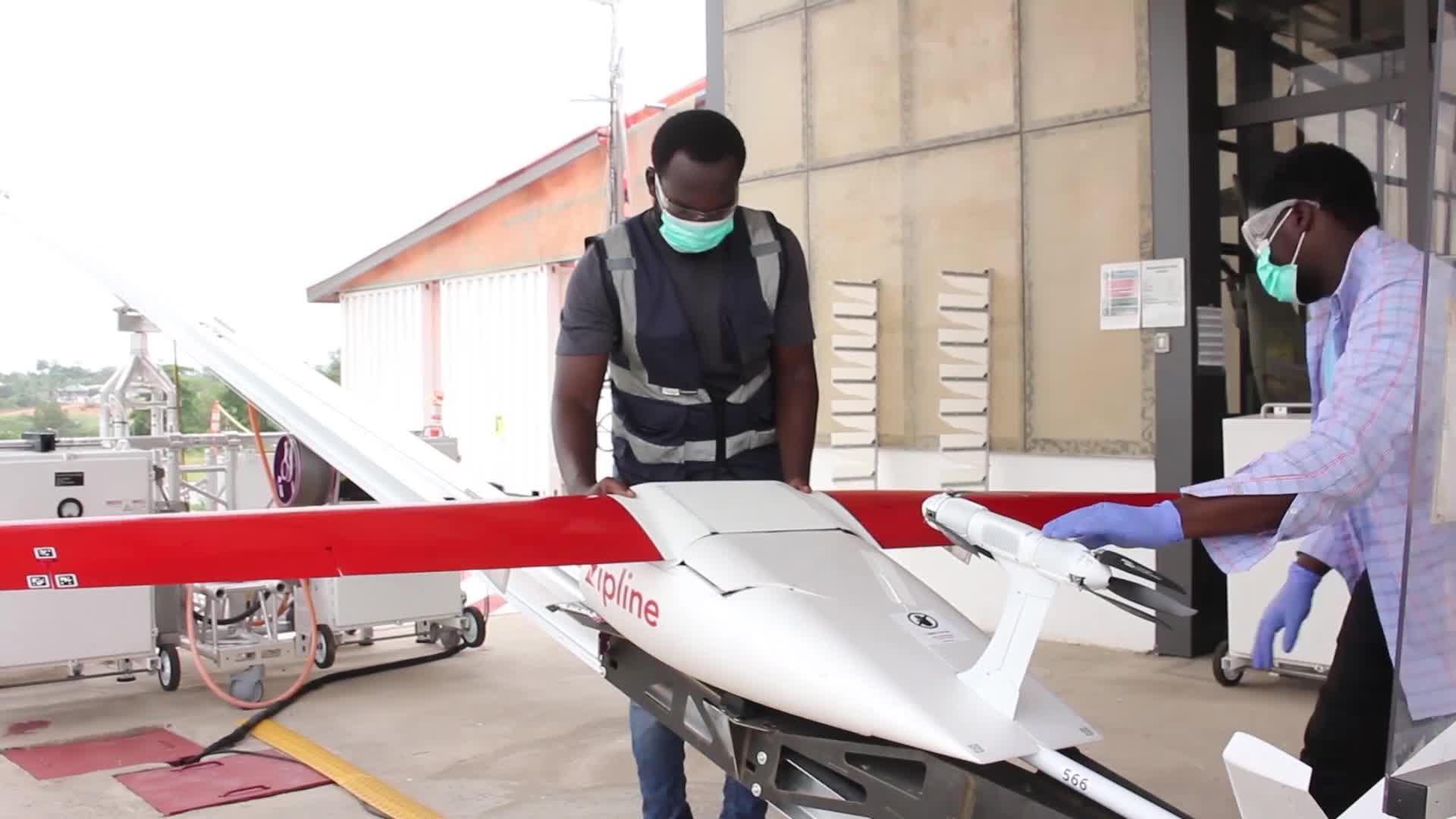
Zipline drones are delivering COVID-19 test samples collected from rural clinics in Ghana to laboratories in the capital Accra and Kumasi, the country’s second-largest city.
The service improves the government’s ability to monitor the spread of the novel coronavirus, the company says.
Zipline was already operational in Ghana, delivering medicines and vaccines by drone from four distribution centers to 2,000 health facilities across the country. The company launched operations in Rwanda in 2016, delivering blood for transfusions on demand to rural hospitals.
The new service began in Ghana on April 1, when 51 COVID-19 test samples collected from patients at rural health facilities were transported by drone from Zipline’s distribution center in Omenako to a medical research institute in Accra for analysis. The delivery required four 70-mi. roundtrip flights.
Zipline is also to begin daily delivery of COVID-19 test samples collected at regional hospitals near its Mapong distribution center to a research center in Kumasi, an almost 60-mi. roundtrip by drone. This will mark the first time autonomous drones make regular deliveries into densely populated urban areas.
Drone delivery avoids a time delay of hours to days while a truck collects enough samples from rural hospitals before returning to the city, Zipline says. That delay also increases the risk that samples are damaged in transit due to broken cold-chain storage. “Now, a single test from a rural area can be transported for analysis in under an hour,” the company says.
As countries combat COVID-19, shifting the primary delivery of vaccines and medicines to drones from trucks helps reduce the risk of exposure, Zipline says. In Rwanda, the company is working to deliver chemotherapy medications to cancer patients who are unable to travel to a hospital due to the pandemic.
Zipline expects to begin delivery operations in the U.S. “within weeks” of receiving FAA approval, now in the works. The emergency service will focus on distributing scarce test kits and protective equipment and helping keep vulnerable non-COVID-19 patients with chronic conditions away from hospitals.





